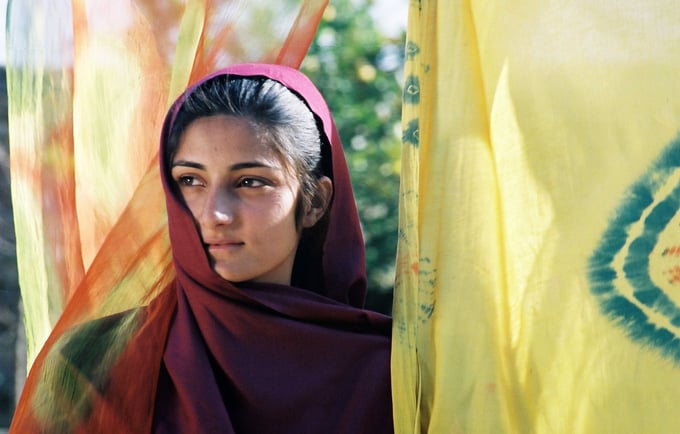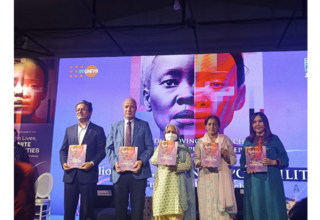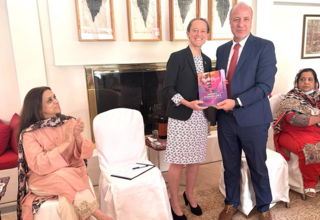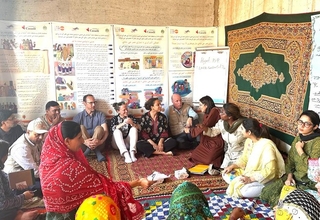One third of Pakistan’s population is between the age of 10 and 24. The decisions they make now as they navigate from adolescence to adulthood will determine not only their own future, but for their families and communities. Yet, young people in Pakistan face major barriers to achieve their full potential. Young women are particularly vulnerable. According to the Pakistan Demographic Health Survey (2012-2013), fourteen per cent of girls, aged 15-19, have been married – this is seven times higher than their male counterparts of the same age. Eight per cent of young women, aged 15-19, have become pregnant, with the highest in Khyber Pakhtunkhwa (KP) at 10.3 per cent, followed by Sindh at 7.9 per cent. School dropout rates are also alarming – 49 per cent of girls and 40 per cent of boys are currently out of school.
UNFPA ensures adolescents and young people remain a priority in Pakistan, advocating for adequate support and investments in their health, education and economic opportunity so they can become powerful drivers of change. In particular, UNFPA works to build a better understanding of the current challenges youth face through the collection of data; advocates for investments in youth to governments, civil society, donors and private sector; and enhances the skills of young people so they can advocate for their own rights and development priorities.
Youth as drivers for change
UNFPA has helped strengthen the capacity of youth departments across Pakistan’s provinces and to create a foundational policy framework for youth issues and development. Results of these efforts has led to numerous provincial responses in Punjab, KP, Sindh, Balochistan, Azad Jammu and Kashmir, and Gilgit-Baltistan. Young people are often under-utilized as crucial partners and decision-makers on issues that affect them. However, meaningful participation of youth is vital to realize their own development as well their communities.
Young people’s leadership and participation in Pakistan remain central to UNFPA’s work. When young people are actively engaged and involved, they are able to build important life-skills, develop knowledge on human rights and promote action. In addition, they are able to make informed decisions about their bodies, lives, families and communities.
UN General Assembly Resolution 58/133, reiterates the “importance of the full and effective participation of youth and youth organizations at the local, national, regional and international levels in promoting and implementing the World Programme of Action and in evaluating the progress achieved and the obstacles encountered in its implementation”. Youth participation has also been prioritized in other international agreements including in the Convention on the Rights of the Child. Recognizing the importance of youth participation UN finds it instrumental in achieving SDGs and FP2020 commitment.
Engaging youth through the Y-PEER Programme
UNFPA engages youth-led organizations and enhances their capacities to design and implement youth programmes. Y-PEER is a ground-breaking programme, supported by UNFPA, that promotes leadership and participation of youth in advocating for issues related to sexual reproductive health and rights and peacebuilding. Y-PEER brings young people to the decision-making table, engaging with governments, civil society, donors and partners to discuss youth development strategies across Pakistan. Through Y-PEER, young activists and youth-led organizations have played an important, high-level role in policy processes and national-level campaigns that advance family planning. In addition, youth are on the ground, promoting sexual reproductive health information and services among young people, in particular, those marginalized and socially excluded.
Y-PEER has also provided youth a platform to share lessons learned across borders and between cultures, regionally and internationally to help improve interventions in sexual and reproductive health.




